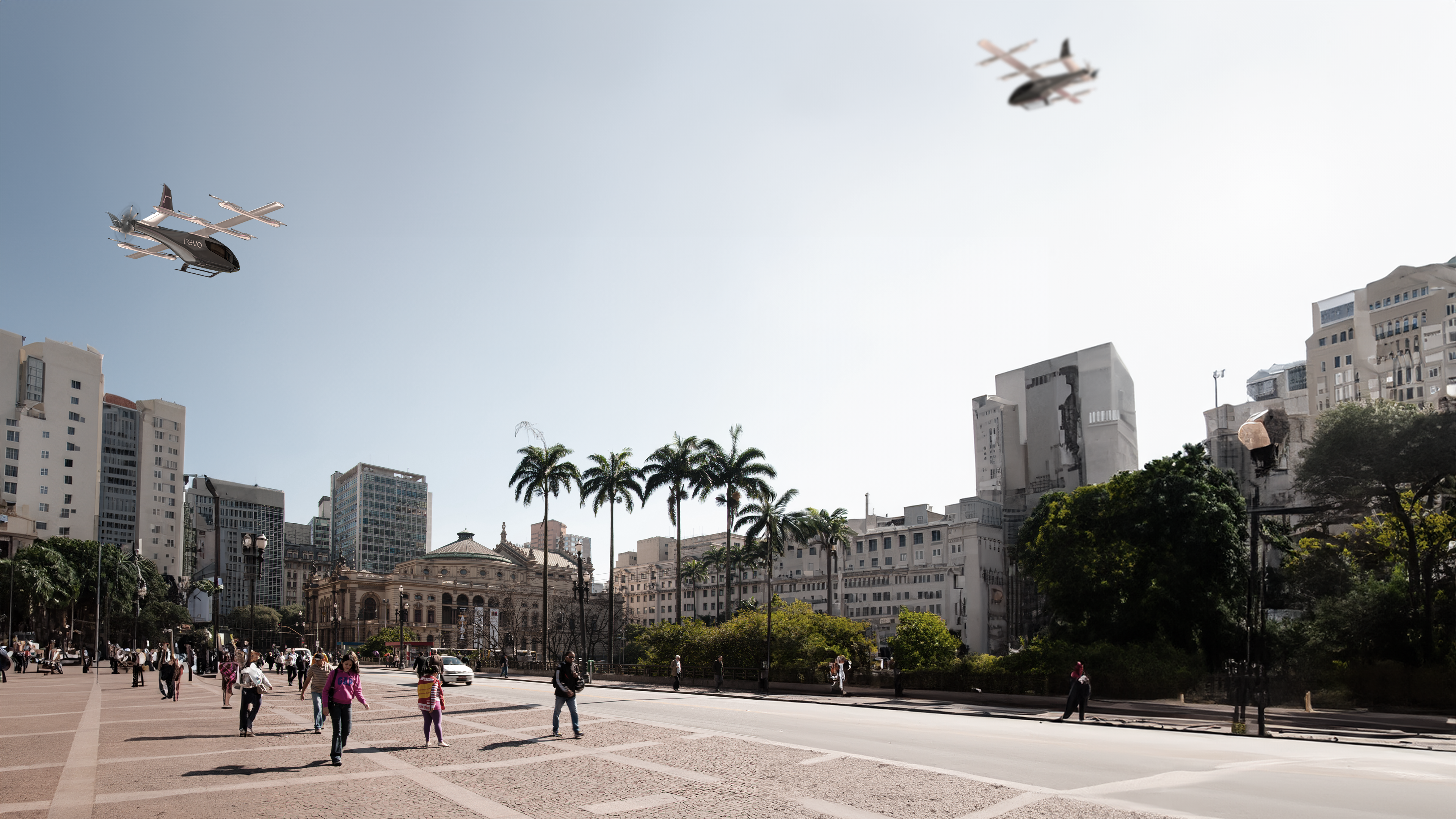Click Here to View This Page on Production Frontend
Click Here to Export Node Content
Click Here to View Printer-Friendly Version (Raw Backend)
Note: front-end display has links to styled print versions.
Content Node ID: 423865
Brazil’s National Civil Aviation Agency (ANAC) has published the final version of the airworthiness criteria that will be used for type certification of the four-passenger eVTOL aircraft being developed by Eve Air Mobility. The milestone announced on November 4 follows an extensive consultation process, with the agency and manufacturer now focused on defining the means of compliance to meet the requirements.
“The feedback received during the public consultation phase was invaluable in refining these [airworthiness] criteria,” said Eve’s chief technology officer, Luiz Valentini. “We are now looking forward to continue working closely with ANAC on type certification and with the FAA on the simultaneous validation of the ANAC type certificate.”
Eve started the type certification process with ANAC in February 2022 and has been working towards getting its aircraft into service in 2026. The company’s main shareholder and strategic partner is Brazilian aerospace and defense group Embraer.
This week, Eve announced the conclusion of an urban air traffic simulation conducted in the city of São Paulo with Brazil’s Omni Helicopters International Group and its charter flight booking subsidiary Revo. The exercise was intended to support development of an ecosystem for planned advanced air mobility services.
Simulating eVTOL Operations in São Paulo
The simulation used helicopters arranged by Revo, which was launched in August 2023 as a platform for booking charter flights. The exercise also used Eve’s Vector urban air traffic management software, which tracked the helicopters as if they were eVTOL aircraft.
Starting on October 21, the partners simulated a variety of operational scenarios, such as departure delays, airspace and weather constraints, and in-flight deviation to alternate landing sites. The primary purpose was to validate how air traffic management processes will support safe and reliable eVTOL air taxi services.
“This simulation reinforces Eve’s efforts to introduce eVTOL flight to metropolitan areas and provide communities with an additional mode of transportation that is safe, sustainable, and efficient,” said Eve CEO Johann Bordais. “We’re delighted to partner with Revo for this initiative to foster the urban air mobility market in Latin America’s largest city, aiming to conduct a real-world simulation to set the stage for urban flights in São Paulo in a climate-conscious manner.”
Revo is among the companies that have committed to operating Eve’s eVTOL model, having placed a preorder for 50 units. It will also have access to the manufacturer’s Eve TechCare fleet support services.

“We see ourselves as a provider of aerial mobility solutions, with innovation in our DNA,” said Omni CEO Jeremy Akel. “As the leader in Latin America in offshore transportation, we aim to be pioneers in adopting new technologies and helicopter models. Recently, we contributed to aviation history in Brazil with the first and longest uncrewed civil flight to an offshore platform, co-existing in airspace with other aircraft. This demonstrates we have the experience and vision to help shape the future of air mobility.”
Development Cost Increase
On October 4, Eve reported that its net loss during the third quarter increased by 15% from $31.2 million in the same period of 2023 to $35.8 million. The company said spending on research and development work had increased, with these expenses for the quarter totaling $32.4 million; much of that spending related to the agreement it has with parent company Embraer to perform various activities.
Sales, general, and administrative expenses increased from $5 million to $8.4 million. These costs related to outsourcing, payroll, and preparing its manufacturing facility at Taubaté in Brazil.
Eve said its cash reserves amounted to $279.9 million at the end of the third quarter, with liquidity reaching $305 million, including a $25 million credit facility arranged by the state-backed development bank BNDES. In October, the bank agreed to an $88 million line of credit for Eve, which has also arranged a $50 million loan with Citibank.